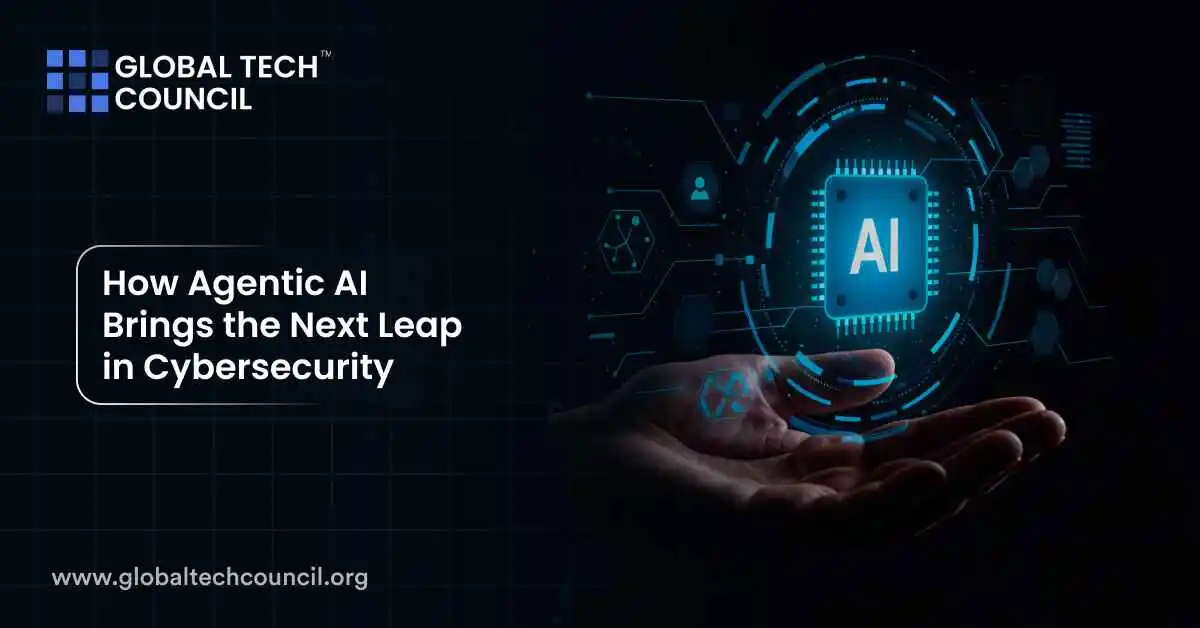 Agentic AI is the biggest shift in cybersecurity we’ve seen in years. In simple terms, it means AI that doesn’t wait for human instructions. It can spot a threat, understand what’s happening, and take action on its own.
Agentic AI is the biggest shift in cybersecurity we’ve seen in years. In simple terms, it means AI that doesn’t wait for human instructions. It can spot a threat, understand what’s happening, and take action on its own.
This is a huge leap from older tools that just send alerts. With Agentic AI, the system itself can investigate, respond, and even stop a cyberattack in real-time.
In this article, you’ll learn how Agentic AI works, how it’s already being used in 2025, and why it’s becoming essential for security teams everywhere.
What is Agentic AI?
Agentic AI is a type of artificial intelligence that can act independently. It doesn’t just follow instructions. It can make decisions based on what it sees.
In cybersecurity, this means an AI system that can:
- Notice a possible threat
- Check if it’s real
- Decide how dangerous it is
- Take steps to fix the problem
All of this happens without waiting for a person to get involved.
Why It Matters for Cybersecurity
The internet never sleeps. Attacks can happen anytime. And most companies don’t have people watching their systems 24/7.
That’s where Agentic AI helps. It works around the clock, handles multiple tasks at once, and keeps learning with every incident.
Here’s what it changes:
- Faster reaction to threats
- Less time wasted on false alarms
- Fewer manual steps for security teams
- Better coverage of all devices and systems
How It Works in 2025
Some of the biggest names in cybersecurity have already built Agentic AI into their tools:
Microsoft Security Copilot: Helps sort alerts and responds to phishing or data loss events automatically.
CrowdStrike Charlotte AI: Tracks threats inside networks and provides a full picture of what happened, without human input.
IBM Autonomous Threat Ops: Investigates threats, decides on action, and applies fixes across systems.
Palo Alto Networks Prisma AIRS: Executes complex security tasks on its own to reduce pressure on IT teams.
These tools are being used by banks, tech firms, healthcare systems, and even small businesses.
Table: Companies Using Agentic AI in Cybersecurity
| Company | Tool Name | What It Does |
| Microsoft | Security Copilot | Handles phishing alerts and triage |
| CrowdStrike | Charlotte AI | Tracks threats and explains cause |
| IBM | Autonomous Threat Ops | End-to-end threat response |
| Palo Alto Networks | Prisma AIRS | Runs full security tasks automatically |
Benefits You Can Expect
Agentic AI gives security teams more time, better visibility, and less stress. Here are the biggest benefits:
- Real-time protection: It doesn’t wait for humans to step in
- Fewer false positives: It learns what a real threat looks like
- Smarter decisions: It gets better with experience
- 24/7 coverage: It never takes a break
It also scales better. Whether you have 100 or 10,000 devices, it can handle them all.
What Makes It Different from Old-School AI?
Older AI systems wait for commands. They’re helpful, but still rely on humans. Agentic AI takes it further.
Here’s a simple comparison:
Table: Traditional AI vs Agentic AI
| Feature | Traditional AI | Agentic AI |
| Needs human input | Yes | No |
| Learns over time | Sometimes | Always |
| Responds to threats | With help | On its own |
| Works 24/7 | Partly | Fully |
| Best for | Alerts and reports | Full threat management |
Challenges to Keep in Mind
Agentic AI is powerful, but it’s not perfect.
- Oversight is still needed: You need checks in place in case it makes a mistake
- It can be complex: These systems need the right setup and training
- Cost may be higher at first: But it often saves more in the long run
Final Thoughts
Cyberattacks are getting faster. Teams are overloaded. Agentic AI is helping solve both problems.
It’s not just a new buzzword. It’s already changing how companies defend their systems in 2025.
If you want to work in security or upgrade your skills, this is the time to learn about it. You can start with a Data Science Certification or explore Cybersecurity Certification. For Deep Tech certification visit Blockchain Council. You can also check out Marketing and Business Certification to build wider career options.